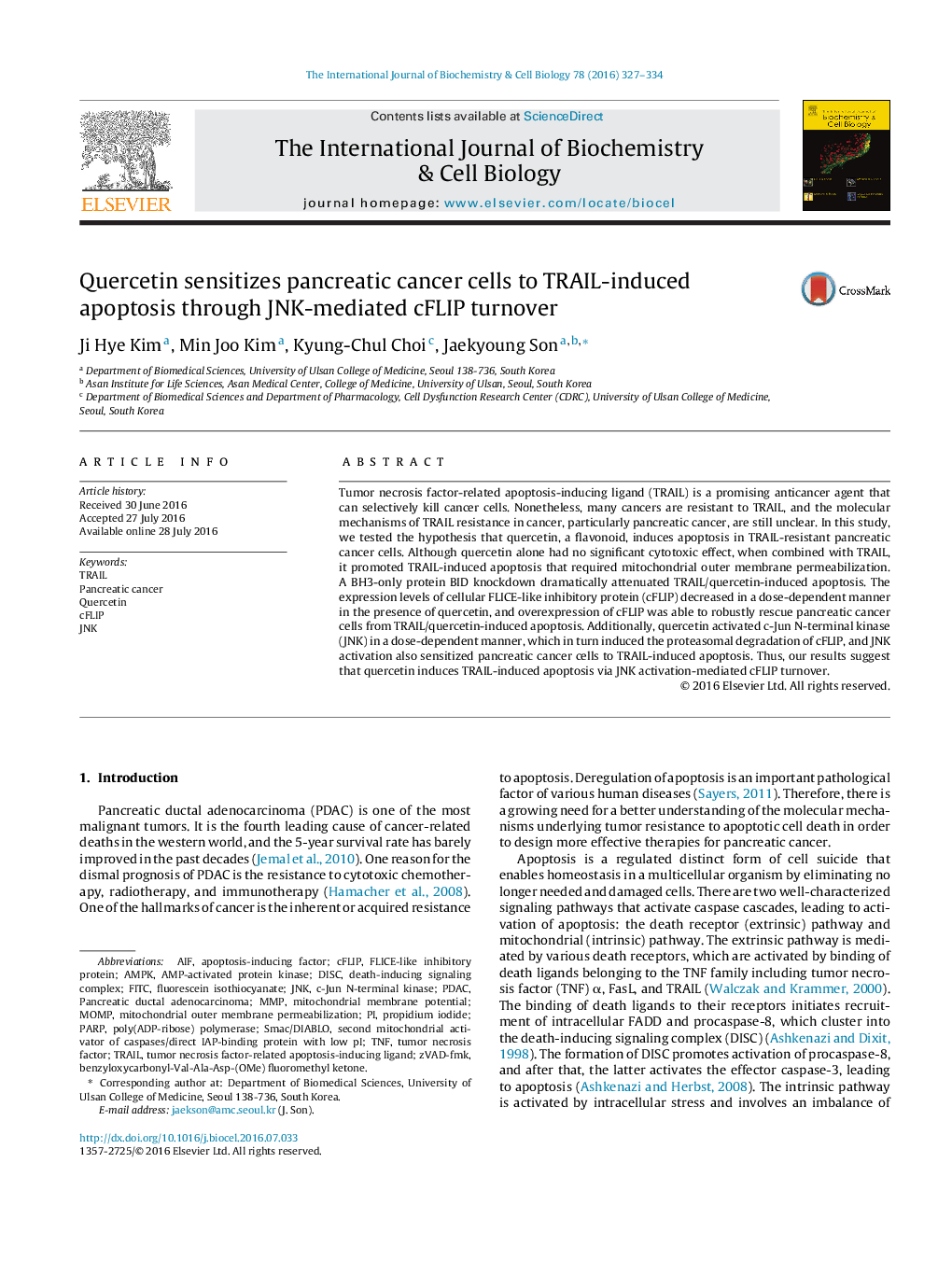| Article ID | Journal | Published Year | Pages | File Type |
|---|---|---|---|---|
| 1983317 | The International Journal of Biochemistry & Cell Biology | 2016 | 8 Pages |
Tumor necrosis factor-related apoptosis-inducing ligand (TRAIL) is a promising anticancer agent that can selectively kill cancer cells. Nonetheless, many cancers are resistant to TRAIL, and the molecular mechanisms of TRAIL resistance in cancer, particularly pancreatic cancer, are still unclear. In this study, we tested the hypothesis that quercetin, a flavonoid, induces apoptosis in TRAIL-resistant pancreatic cancer cells. Although quercetin alone had no significant cytotoxic effect, when combined with TRAIL, it promoted TRAIL-induced apoptosis that required mitochondrial outer membrane permeabilization. A BH3-only protein BID knockdown dramatically attenuated TRAIL/quercetin-induced apoptosis. The expression levels of cellular FLICE-like inhibitory protein (cFLIP) decreased in a dose-dependent manner in the presence of quercetin, and overexpression of cFLIP was able to robustly rescue pancreatic cancer cells from TRAIL/quercetin-induced apoptosis. Additionally, quercetin activated c-Jun N-terminal kinase (JNK) in a dose-dependent manner, which in turn induced the proteasomal degradation of cFLIP, and JNK activation also sensitized pancreatic cancer cells to TRAIL-induced apoptosis. Thus, our results suggest that quercetin induces TRAIL-induced apoptosis via JNK activation-mediated cFLIP turnover.
